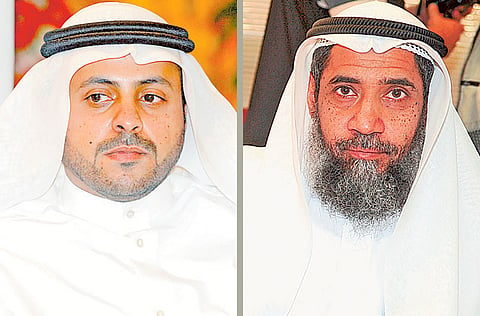Kuwait MPs lash out at Amnesty for questioning homosexuals ban
Lawmakers want foreign ministry to reject watchdog’s ‘interference in domestic affairs’

Manama: Lawmakers in Kuwait have lashed out at Amnesty International for criticising a proposal to introduce ‘clinical tests’ to bar homosexual or transgender foreigners from entering and working in any of the six Gulf Cooperation Council (GCC) member counties.
The lawmakers, backed by Islamists, said that they expected the foreign ministry to respond “in particularly strong terms” to the international human rights watchdog, warning that they would take the matter up in the parliament if they were not satisfied with the answer.
The proposal was reported last week by a local daily newspaper that quoted a Kuwaiti health ministry director who said that it would be discussed by the GCC Central Committee for Expatriate Labour Forces Programme of the Gulf Cooperation Council (GCC) in Oman on November 11.
Amnesty International said that the proposal “to introduce compulsory ‘medical tests’ and bar any migrant workers deemed to be ‘homosexual’ or transgender from entering Kuwait and other Gulf countries was outrageous and should be rejected out of hand.”
“Instead of continuing to discriminate against lesbian, gay, bisexual, transgender and intersex individuals, authorities in Kuwait should work to ensure that people are not harassed and abused because of who they are and repeal laws that criminalize sexual acts between consenting adults,” said Philip Luther, Middle East and North Africa Director at Amnesty International.
However, in remarks published by local daily Al Rai on Monday, MP Abdul Rahman Al Jiran said: “The decision to bar homosexuals from entering Kuwait is a sovereign decision. Amnesty International should take care of lofty and noble goals for which it was established, leave aside homosexuality and deviations and stop defending delinquents. The organisation should heed the annual rates of births outside the institution of marriage in Europe and abortions as well as the high rates of underage mothers and other moral crimes forbidden by all divine religions.”
MP Mohammad Al Jabri said that the statement by Amnesty International was not acceptable.
“I was surprised like all Kuwaitis by the interference in the affairs of an Islamic country where its people are committed to the values of Islam,” he said in a statement. “I condemn the brazen requests by an organisation that introduces itself as a protector of freedoms and human rights. The Ministry of Foreign Affairs should respond urgently to the so-called Amnesty International to highlight the noble Islamic principles, values and teachings in which the people of Kuwait believe and which reject the propagation of vice and debauchery in the community.”
The lawmaker said that the foreign ministry’s response should be “both clear and strongly worded.”
“We need to make sure that this organisation or any other would not dare target Kuwait or its pure Islamic beliefs,” he said. “The ministry’s response will be under the scrutiny of the National Assembly immediately after its release to ascertain the extent of its reaction to the offense perpetrated by the international organisation and which is rejected by all Kuwaitis.”
Former MP Mohammad Al Hayef said that he rejected the call by Luther to the authorities in Kuwait and other GCC states to “reject any proposals to introduce these discriminatory ‘medical tests’ to ‘assess’ the sexual orientation or gender identity of people entering the country.”
“Such statements cause a backlash against the organization,” he said. “It should have reinforced the slogan of human rights and the defense of the oppressed, not confuse issue and interlace honey with poison so that one of its officials dares to encourage behaviour that is against the human nature and clashes with the teachings of all apostles. Deviant behaviour and attitudes undermine and destroy humanity.”
According to Thawabet Al Umma, an Islamist group, Amnesty International “should in the name of humanity encourage people to be straight in their behaviour and attitudes, and not encourage them to engage in deviant acts and destructive acts that undermine communities through lethal physical and psychological that are difficult to treat.”
Sign up for the Daily Briefing
Get the latest news and updates straight to your inbox



